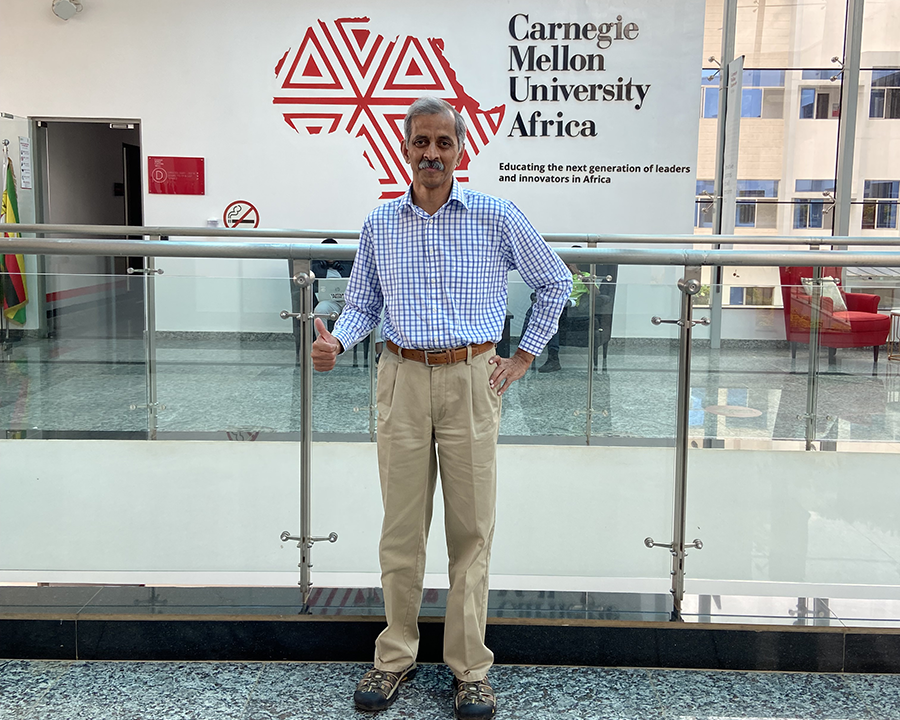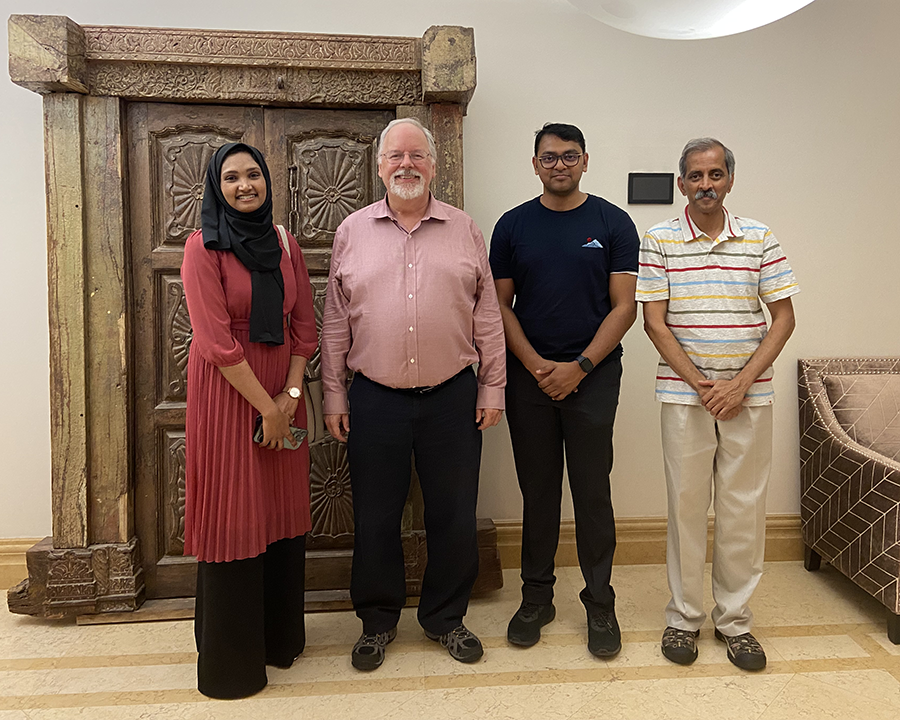A global approach to tackling grand challenges
CMU-Africa students join CMU-Pittsburgh and CMU-Qatar students in a hybrid course that focuses on critically evaluating the progress of artificial intelligence.
Aspiring engineers come to Carnegie Mellon University to learn in a way that goes well beyond principles in a textbook. Practical, hands-on work gives students real-world experience to help them excel in their careers. In Ganesh Mani’s course Grand Challenges in AI: Past, Present, and Future, he tackles this philosophy through the project-based curriculum offered to students across three continents. Graduate students at CMU-Africa, graduate students in the Heinz College of Information Systems and Public Policy, and undergraduate students at CMU-Qatar come together in a hybrid course that focuses on critically evaluating the progress of artificial intelligence (AI).
“What I tell my students is that this course represents an important aspect of their future careers: the ability to work globally. On day one of a job, you’re very likely to be asked to work with a global team. You’re going to have to coordinate talking to different people across time zones as well as have your perspectives and work interpreted by colleagues of different cultures,” says Mani, adjunct professor at CMU-Africa.
What I tell my students is that this course represents an important aspect of their future careers: the ability to work globally
Ganesh Mani, Adjunct Professor, CMU-Africa
The course was inspired by Mani’s reflection on a 1988 talk and article from his colleague and mentor Raj Reddy, a professor of computer science and robotics. Reddy had laid out the grand challenges that he felt the field of artificial intelligence would see over the next three decades. When Mani decided to write a follow-up article in AI Magazine in 2021, he turned the topic into a course that would allow students to get involved in this critical conversation.
The course includes guest lectures from thought leaders such as University of Maryland’s Catherine Nakalembe, who talks to students about remote sensing for agriculture in Africa, and Bill and Melinda Gates Foundation’s Kanwaljit Singh, who discusses the role of digital public goods in the field of AI.

Source: Ganesh Mani
Mani at CMU-Africa in Kigali, Rwanda
Students are asked to work together in small groups to choose a topic that could serve as a building block or inform key issues around a grand challenge in AI. Each group is made up of students from all three CMU locations. Mani explains that projects can be surveys, critical evaluations of existing systems, scaled-down pilot implementations, or bold, well-thought-out suggestions.
“One of the interesting projects was titled ‘Understanding Gender-based Violence in Africa,’” says Akintayo Jabar (’21), who served as a teaching assistant for the course after obtaining his master’s in information technology degree from CMU-Africa. “This was particularly interesting because the subject is a sensitive one. The information obtained from the project could be instrumental in policies aimed at reducing and ultimately preventing gender-based violence cases.” Other project topics have ranged from crop sensing to chat bots in African banking.

Source: Ganesh Mani
Mani in Doha when visiting CMU-Qatar with Dean Michael Trick and colleagues.
The majority of the course is taught in a hybrid fashion from CMU-Pittsburgh; however, Mani spends a week teaching in-person at both CMU-Africa and CMU-Qatar in order to meet his students. During the semester, students are encouraged to share their perspectives on the course topics, which often differ because of the diverse cultural experiences of the class participants.
“Multi-location courses usually foster a diversity of experiences, and this wasn’t any different. The students across all locations contributed the peculiarities of their experiences during discussions, and how AI has impacted, is impacting, and could still impact them,” says Jabar.
The course will be offered again in the fall of 2023, with some modifications and the new title of “AI and Emerging Economies.” In the future, Mani hopes to expand this class to include students from other disciplines within Carnegie Mellon.
